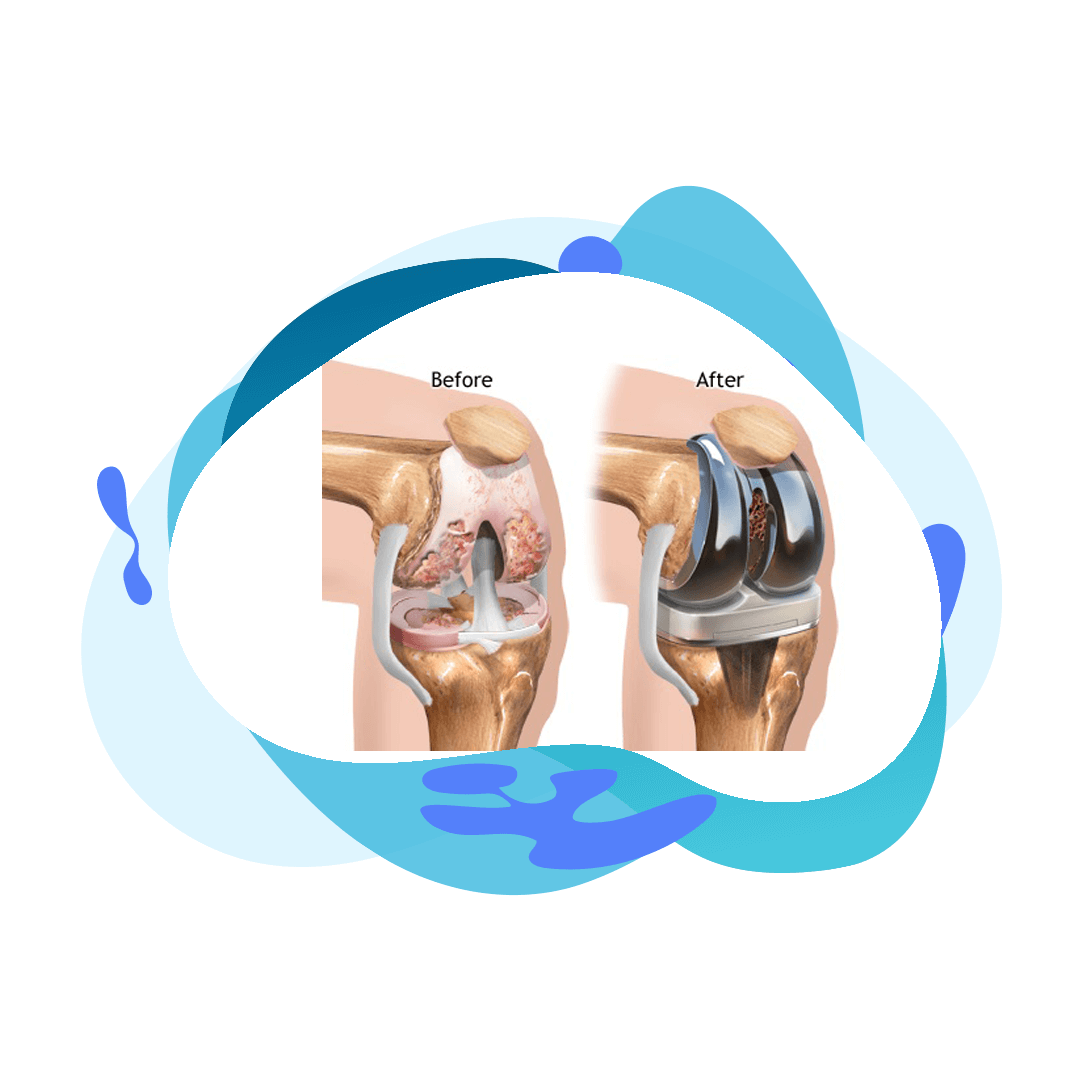knee replacement in Iran | Affordable Cost of Arthroplasty
Best Hospital
We Introduce Best Hospital for knee replacement surgery
Best Doctors
We Introduce Best Doctors for knee replacement surgery
Best Price
We Try to introduce best Services with Regular Price
Why choose Iran for treatment and medical procedures?
- Low cost
- Board licensed surgeons
- Quality health care
- Less waiting time
- Accredited hospital
- Personal service
- Language capability
- Ease of medical visa
- Treatment with advanced technology
- Strong presence in advanced healthcare e.g. Transplantation – high success rate in the operation
What is knee replacement?
If you find yourself facing difficulties in performing basic activities like walking or climbing stairs due to arthritis or knee injuries, along with experiencing pain even at rest, Knee Replacement surgery can provide a viable solution.
Knee replacement surgery, also known as Knee Arthroplasty or Knee Resurfacing, aims to replace the damaged portions of the knee joint, alleviating pain and discomfort.
This procedure involves creating an incision in the affected bone or cartilage and substituting it with an artificial joint (prosthesis)
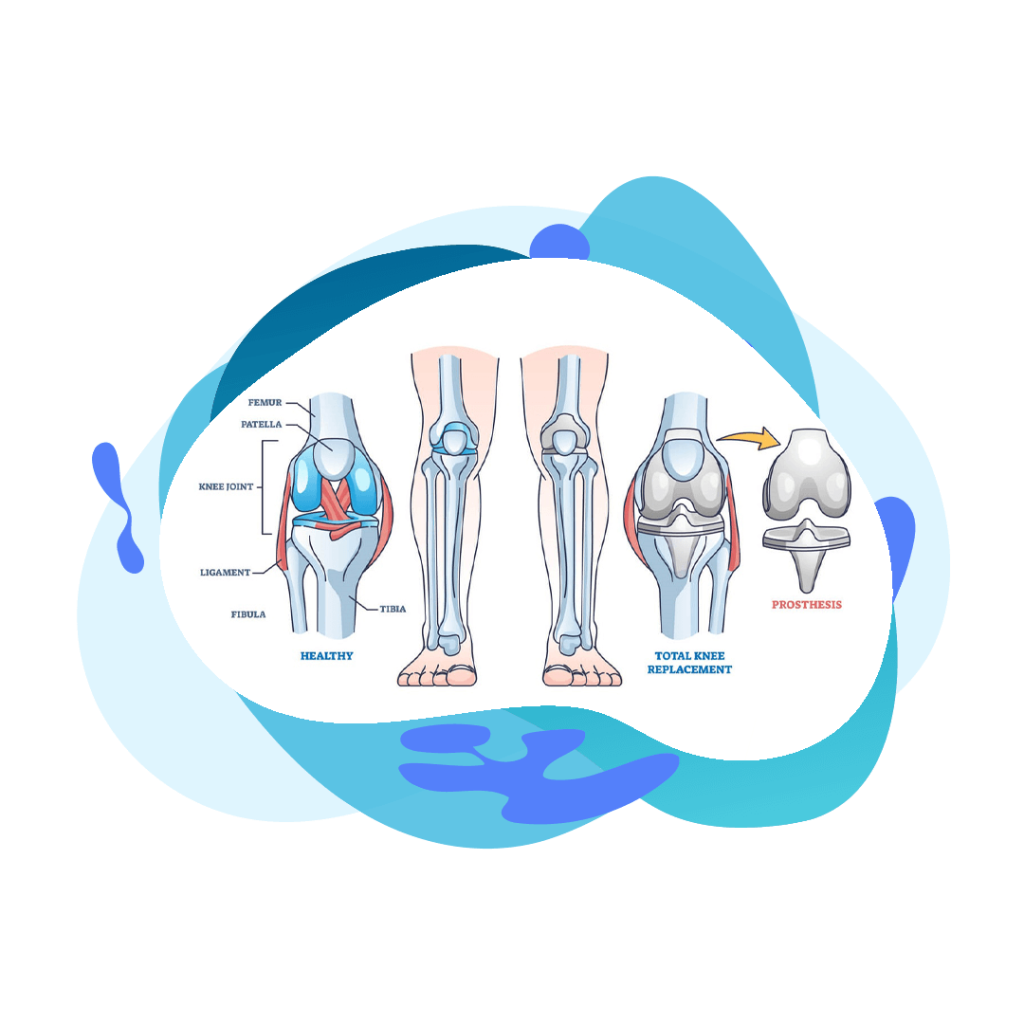

What is the purpose of knee replacement surgery?
The purpose of knee replacement surgery is to alleviate pain and improve mobility in individuals with severe knee damage caused by arthritis, injuries, or other conditions.
By replacing the damaged joint surfaces with artificial components, the surgery aims to restore function, enhance quality of life, and enable the resumption of daily activities with reduced discomfort.
knee replacement surgery in Iran|Affordable Cost of Arthroplasty
If your knee joint is severely affected by arthritis or injury, it may limit your physical activity, such as walking or climbing stairs. You may even experience pain at rest.
If medications, reduced physical activity, and the use of additional walking support no longer help, a total knee replacement may be considered. As a result of this operation, pain can go away, the deformity of the limb can be corrected, and normal physical activity can return.
One of the most significant achievements in orthopedics of the 20th century, total knee arthroplasty was first performed in 1968. Improvements in surgical materials and techniques since then have greatly increased the efficiency of this operation. In the US, approximately 300,000 of these surgeries are performed annually.
knee replacement | knee surgery
Knee Anatomy
The knee is a complex joint that connects the thigh bone (femur) to the shinbone (tibia). It is supported by ligaments, tendons, and muscles, allowing for stability and movement. The knee joint consists of the patella (kneecap), femur condyles, tibia plateau, and menisci, all working together to facilitate walking, running, and other activities.
What is the goal of knee replacement surgery?
The primary goal of knee replacement surgery is to relieve pain and improve the function and mobility of the knee joint. This surgical procedure is typically recommended for individuals with severe knee pain and limited mobility caused by conditions such as arthritis or joint damage. By replacing the damaged or diseased parts of the knee joint with artificial components, knee replacement surgery aims to reduce pain, restore range of motion, and allow individuals to engage in daily activities with greater ease and comfort.
Life after knee replacement surgery
Life after knee replacement surgery brings reduced pain and improved mobility, enabling individuals to regain an active and fulfilling lifestyle.
But, you must avoid certain movements and sports, including running and contact sports.
Even with normal use of the endoprosthesis, Its components, especially the polymer spacer, will wear out. If you experience increased stress on the joint or suffer from increased weight, the wear process can accelerate and cause instability of the prosthesis and renewed pain. With adequate use, a knee replacement can last for many years.
Is knee replacement surgery worth it?
The response would definitely be a resounding “Yes.” Similar to other surgical procedures, knee joint surgery presents certain possible complications, and naturally, numerous advantages.
but it is crucial to bear in mind that complications are seldom observed. Moreover, they can be averted by selecting a competent surgeon and taking into account pre- and post-operative precautions.
For most people, knee replacement provides pain relief, improved mobility and a better quality of life.
Contact us for more information on diagnosis, treatment and free consultation for breast cancer
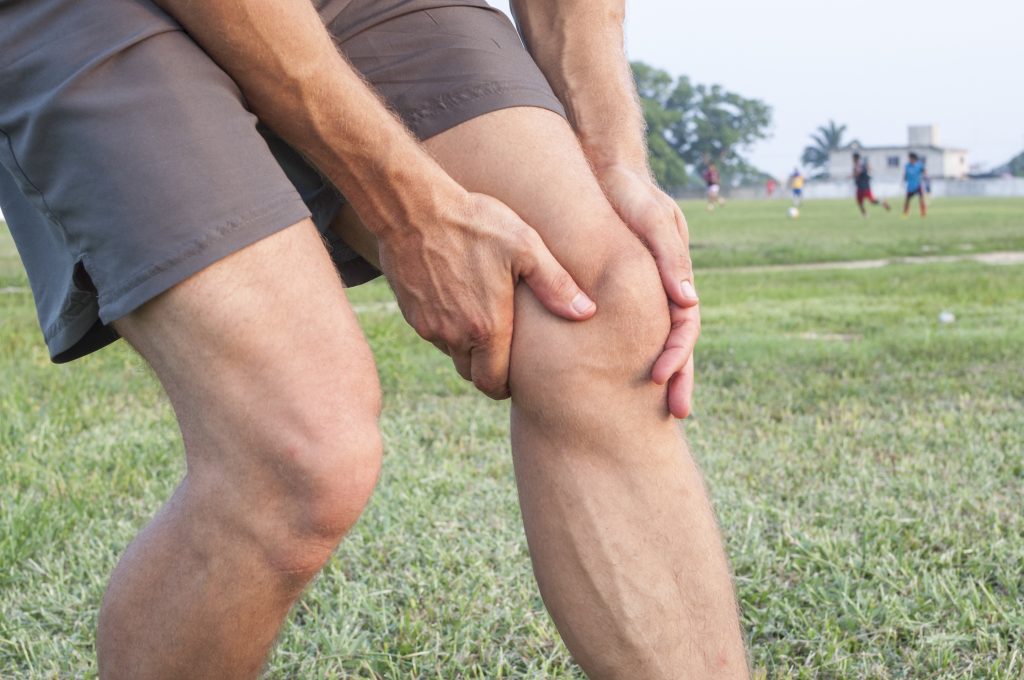
knee replacement in Iran|Arthroplasty
knee operation | knee replacement operation
Who is a good candidate for Knee replacement surgery?
Total knee arthroplasty can be classified into three primary categories:
Osteoarthritis: This form of arthritis typically develops with age and commonly affects individuals aged 50 and above. It results in the degeneration of the knee joint’s cartilage, leading to pain and stiffness.
Rheumatoid arthritis: This type of arthritis is an autoimmune disease that causes inflammation and damage to the joint’s cartilage, leading to chronic pain, swelling, and joint deformity.
Post-traumatic arthritis: This condition occurs as a consequence of a severe knee injury or trauma, which can disrupt the normal functioning of the knee joint and result in long-term pain and limited mobility.
IS IRAN A GOOD OPTION FOR KNEE REPLACEMENT SURGERY?
Iran takes pride in its orthopedic specialists, with over 100 surgeons having completed a rigorous four-year orthopedic residency program and pursued postgraduate courses in renowned medical universities. Many of these specialists have furthered their education in Europe and North America, specializing in various areas such as hand, spine, knee, and shoulder surgeries. With the substantial volume of orthopedic surgeries conducted annually, Iranian surgeons demonstrate the ability to compete with their counterparts in the best countries worldwide, delivering surgeries of unparalleled quality and efficacy.
Our Services

Your message will be reviewed by our doctors and specialist . We will get back to you within 24 Hours.
Nodeh Gasht Aram experts will answer your questions 24/7 , through online chat or by phone.
You get medical opinion and cost estimate
Nodeh Gasht Aram plan your trip.
We arrange your medical visa , flight, ticket, appointments, accommodation etc.
Booking various types of accommodation
interpreter
insurance
SIM & Internet
City Tour
Collaboration with different medical centers to get the best diagnosis and treatment by talent doctors and surgeons...
Post-treatment recuperation and check up .
After the completion of treatment and you return to your country, we will follow you around the clock.
Why Nodeh Gasht Aram?
- Contact Us Via Whatsapp: Your message will be reviewed by our doctors and specialist . We will get back to you within 24 Hours.
- Free Consultation: Nodeh Gasht Aram experts will answer your questions 24/7, through online chat or by phone.
- Qoutation: You get medical opinion and cost estimate
- Ticketing & Visa Support: Nodeh Gasht Aram plan your trip We arrange your medical visa , flight, ticket, appointments, accommodation etc.
- Hotel Booking,Travel Insurance,Interpreter: Booking various types of accommodation, interpreter, insurance, SIM & Internet, City Tour
- Hospitality & Diagnosis & Treatment: Collaboration with different medical centers to get the best diagnosis and treatment by talent doctors and surgeons.
- Recovery: Post-treatment recuperation and check up .
- Follow-up: After the completion of treatment and you return to your country, we will follow you around the clock.
Contact Us Via Whatsapp
Free Consultation
Qoutation
Ticketing & Visa Support
Hotel Booking,Travel Insurance,Interpreter
Hospitality & Diagnosis & Treatment
Recovery
Follow-up
Our Services
 Aortic valve stenosis (Aortic stenosis)
Aortic valve stenosis (Aortic stenosis) arteriovenous malformations
arteriovenous malformations Avascular Necrosis
Avascular Necrosis Cardiology
Cardiology Cataract surgery in Iran
Cataract surgery in Iran Cochlear Implant Surgery in Iran
Cochlear Implant Surgery in Iran Eye Care
Eye Care General Heart Surgery in Iran
General Heart Surgery in Iran
Aortic valve stenosis (Aortic stenosis)
Angiography Angiography is a medical imaging technique used to visualize the blood vessels in the body, particularly the arteries and veins.Angiography is a medical imaging technique used to visualize the blood vessels in the body, particularly … Read More Angioplasty Angioplasty is a medical procedure used to treat narrowed or…
Doctors
1- Read more

arteriovenous malformations
AVMWhat is an AVM What is an arteriovenous malformation (AVM)? An arteriovenous malformation (AVM) is an abnormal tangle of blood vessels that forms a direct connection between arteries and veins, bypassing the normal capillary network. Normally, oxygenated blood flows from the heart through arteries to capillaries, where it exchanges oxygen…
Doctors
1- Read more
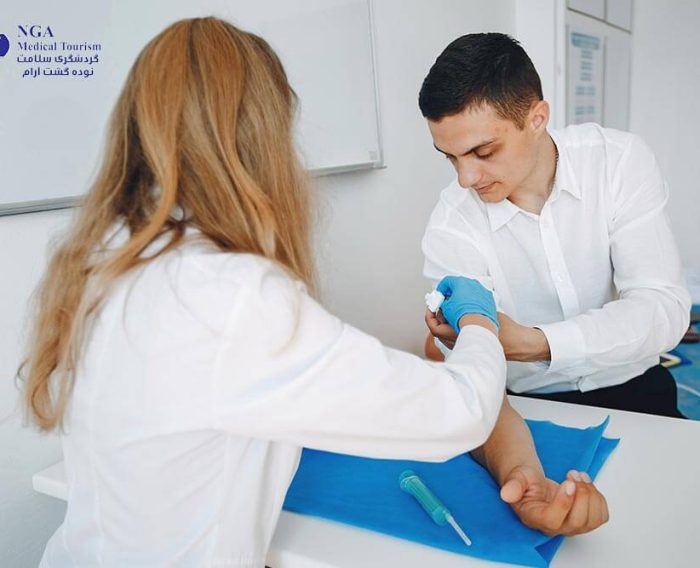
Avascular Necrosis
Avascular necrosis (AVN), also known as osteonecrosis, is a condition that occurs when there is a loss of blood supply to a bone, leading to bone tissue death. This can result in pain, limited range of motion, and joint collapse, which can ultimately lead to arthritis. Detail Heart Transplant In heart…
Doctors
1- Read more
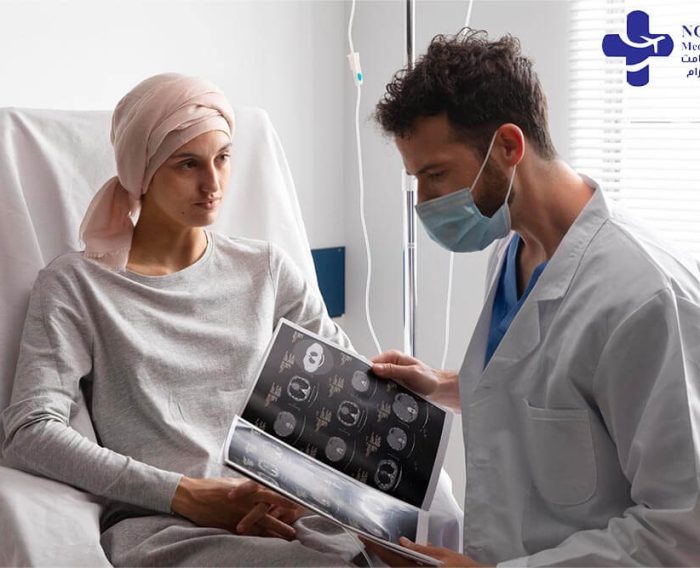
Cancer in Iran: oncology in Iran
Cancer in Iran: Affordable costs of cancer treatment in Iran In the realm of cancer in Iran treatment, the country has emerged as a global hub for those seeking effective and compassionate care. The nation’s medical landscape has undergone transformative advancements, boasting state-of-the-art facilities and a cadre of expert oncologists…
Doctors
1- Read more

Cardiology
Cardiology Why Choose Iran for Cardiology? Iran is an attractive choice for cardiology due to its advanced medical infrastructure, highly skilled healthcare professionals, and renowned cardiac research centers. Iran boasts world-class hospitals and clinics equipped with cutting-edge technology, offering a wide range of cardiac treatments and surgeries. Iranian cardiologists are…
Doctors
1- Read more

Cataract surgery in Iran
Cataract Surgery in Iran The cost of cataract surgery in Iran varies depending on the location, the hospital or clinic, and the type of lens used, but it is generally much more affordable than in many developed countries. The procedure is covered by Iran’s national health insurance program, which makes it accessible…
Doctors
1- Read more
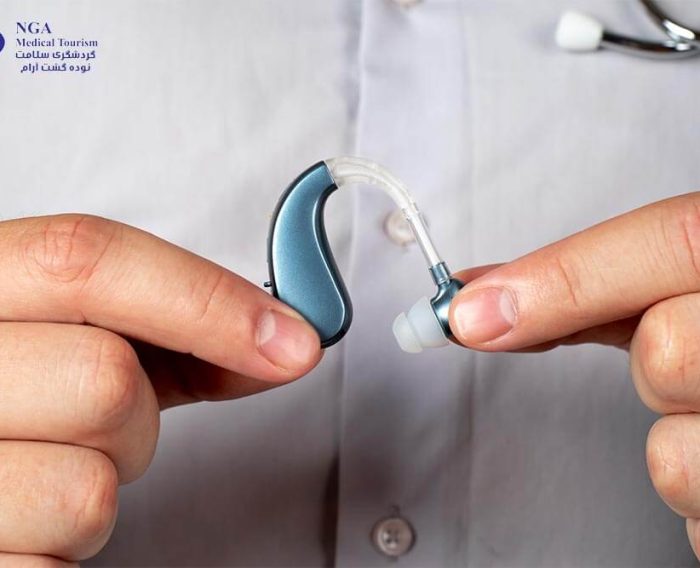
Cochlear Implant Surgery in Iran
Cochlear Implant Surgery Cochlear implant surgery is a medical procedure that involves implanting an electronic device, called a cochlear implant, into the inner ear to help individuals with severe to profound hearing loss hear sounds and improve their ability to communicate. surgery cochlear implant In conclusion, cochlear implant surgery is a safe and effective…
Doctors
1- Read more
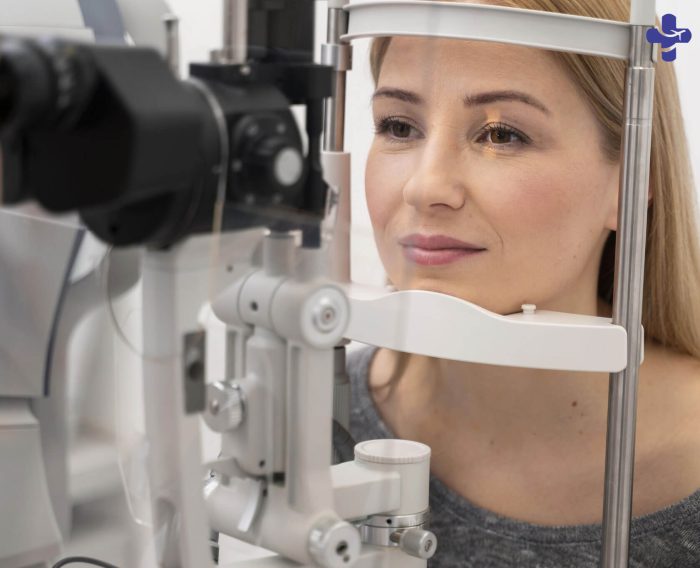
Eye Care
Why Choose Iran for eyecare? Choosing Iran for eye care can be an attractive option due to its combination of quality medical services, cost-effectiveness, advanced eye surgery techniques, multilingual services for international patients, tourism opportunities, a dedicated medical tourism infrastructure, and a strong reputation in the field of eye care.…
Doctors
1- Read more

General Heart Surgery in Iran
General Heart Surgery Best Hospital We Introduce Best Hospital for General Heart Surgery Best Doctors We Introduce Best Doctors for General Heart Surgery Best Price We Try to introduce best Services with Regular Price General Heart Surgery About General Heart Surgery Your heart is the most important and efficient part…
Doctors
1- Read more
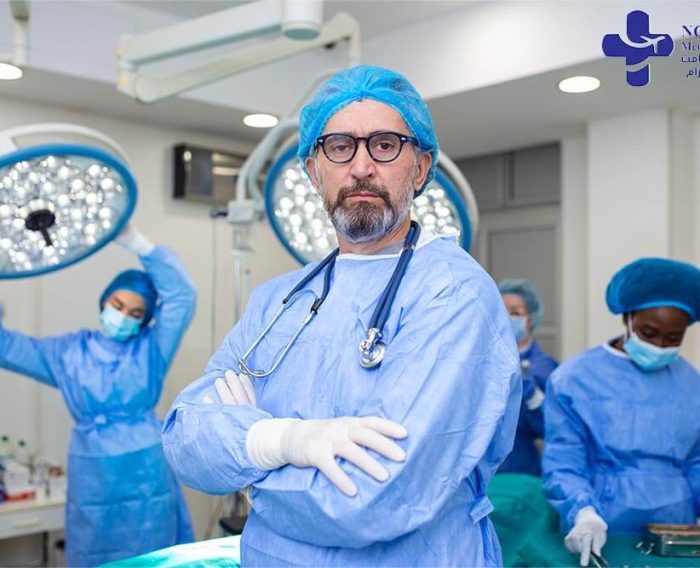
General surgery in Iran
Why choose Iran for General Surgery? Iran is an increasingly popular choice for general surgery due to its combination of highly skilled surgeons, cost-effective healthcare, and well-equipped medical facilities. Iranian surgeons are known for their expertise and experience, offering high-quality care at a fraction of the cost compared to many…
Doctors
1- Read more
Choose a good doctor for knee replacement surger
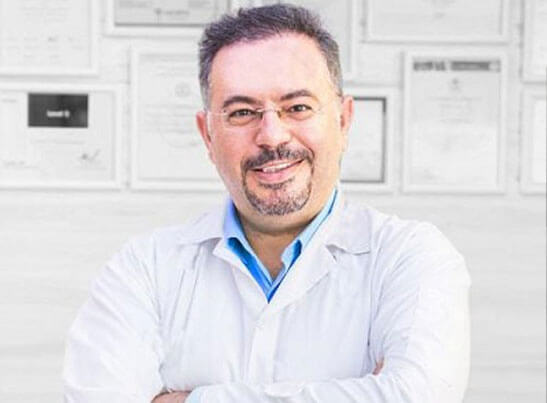
Dr.Afshin TaheriAzam
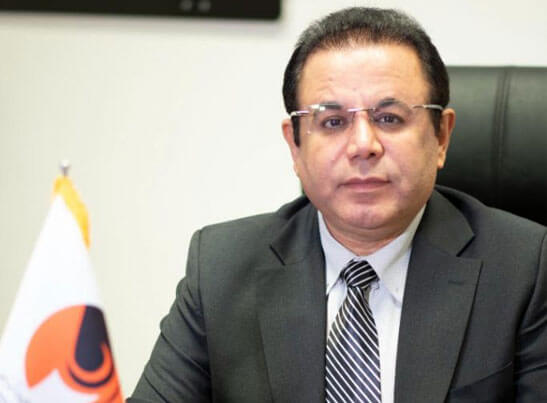
Dr.Habib Reshadi
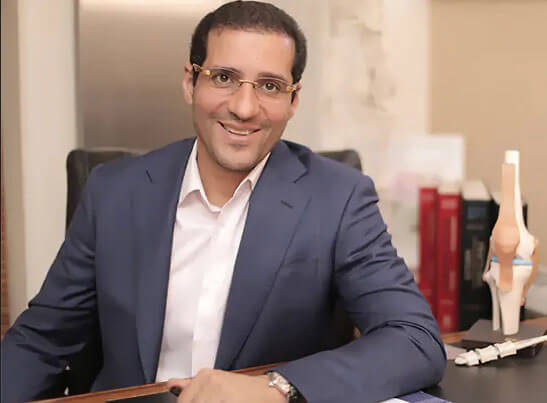
Dr.Mehdi Moghtadaei
Before Knee Replacement
Prior to the surgery, patients are advised to discontinue the use of specific medications such as Aspirin, non-steroidal anti-inflammatory drugs (NSAIDs), and herbal supplements. Smoking cessation is recommended several weeks before and after the surgery. Fasting from food and drink is typically required for approximately 6 hours before the procedure.
During Knee Replacement
you will be examined by an anesthesiologist. The most common types of anesthesia for total arthroplasty are endotracheal anesthesia (you will be asleep during the operation and the ventilator will breathe for you), spinal anesthesia or epidural anesthesia (which will allow you to breathe on your own, but your legs will not feel anything. Anesthesiologist will discuss with you the advantages and disadvantages of these methods and help you choose the most appropriate type of anesthesia.
The operation takes on average about two hours. The surgeon will remove the damaged cartilage and part of the bone and then install new metal and polymer articular surfaces in order to restore the axis of the limb and the function of the knee joint.
Many different types of prostheses are currently used in total knee arthroplasty. Almost all of them have three components:
- the femoral component (made of highly polished, durable metal)
- the tibial component (composed of a tough polymer, often placed on a metal platform)
- patella (made of polymer).
video of Knee replacement | Arthroplasty
After knee surgery:
After the operation, after full awakening, you will be transferred to your room.
You will be in the clinic for several days. After the operation, you will feel pain in the operated joint. You will receive pain medication to relieve pain.
Walking and light exercise for the operated joint is essential for recovery and should begin shortly after surgery.
To prevent lung complications, you must breathe deeper and cough more frequently.
The surgeon will take certain measures to prevent thrombosis and prevent swelling, such as elastic bandages, stockings, and the use of anticoagulants.
Foot and ankle exercises should also be done immediately after surgery and help increase blood flow to the extremities, reducing swelling and the risk of blood clots. Many patients begin knee exercises the day after surgery. Your physiotherapist will teach you specific exercises to strengthen your knee and restore the movement needed for walking and normal daily activities shortly after surgery.
Choose a good hospital for knee replacement surgery
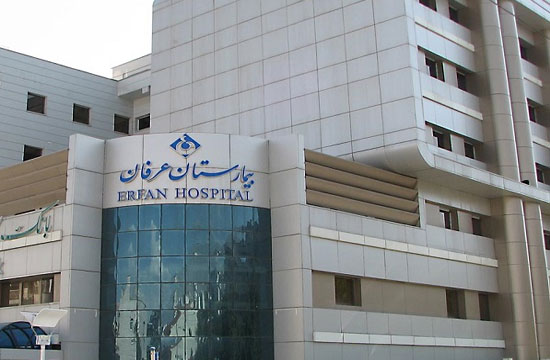
Erfan Hospital
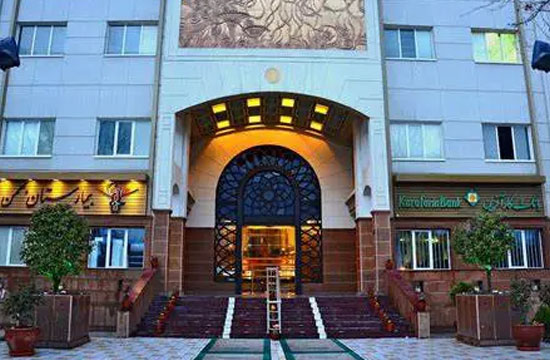
Bahman Hospital
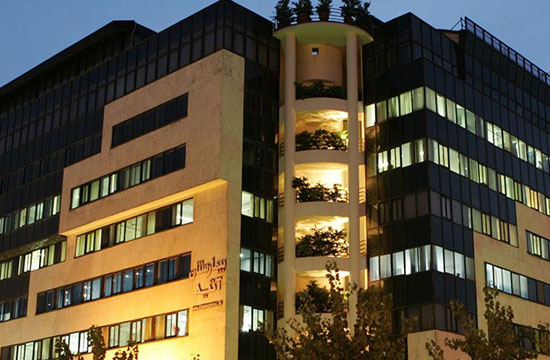
Atieh Hospital
Possible complications after surgery
The risk of complications after this operation is low.
- Infection
- Blood clots
- Implant problems
- Fracture
- Nerve or blood vessel damage
- Persistent pain or stiffness
Advantages of Knee Replacement Surgery:
- Feeling relief from pain
- Enhancement of mobility
- Improvement of quality of life
Disadvantages of Knee Replacement Surgery:
- Limited lifespan of prostheses may necessitate additional surgeries for younger patients.
- Reduced range of motion compared to a natural knee joint.
- Possibility of audible sounds or sensations within the replaced knee joint.
Homecoming
The success of the operation largely depends on how you follow the recommendations of the orthopedist at home during the first few weeks after the operation.
Careful attitude to the postoperative wound: Your wound will be stitched or stapled along the anterior surface of your knee joint, or it will be sutured with a subcutaneous suture. The braces or stitches will be removed approximately two weeks after surgery. The subcutaneous suture does not require removal.
It is necessary to be careful not to get water on the wound until it is completely sealed. You can put a bandage on the wound to prevent clothing or elastic stockings from irritating the wound.
Diet: A slight decrease in appetite is often present for several weeks after surgery. A balanced iron-rich diet is essential to assist in tissue healing and muscle strength restoration. Of course, you need to drink enough fluids.
Activity: Exercise is a crucial component of your home rehabilitation, especially during the first weeks after surgery. You should return to normal activities and daily life within 3 to 6 weeks after surgery. During this time, you will experience slight discomfort during active movements and at night.
Your activation program should include:
Gradually increasing duration of walking, first at home, and then on the street.
Practice essential movements such as sitting down, getting up from a chair, walking up stairs.
Return to the necessary household chores.
Special exercises a few minutes a day to develop movements in the knee joint.
Special exercises a few minutes a day to strengthen the knee joint.
It is possible to carry out physiotherapy activities at home.
Driving a car is possible when you develop movements in the operated joint in order to get into the car without difficulty and when the muscles can provide an adequate response when pressing the pedals. Most often this happens 4 to 6 weeks after surger
Hotels

Espinas Palace Hotel
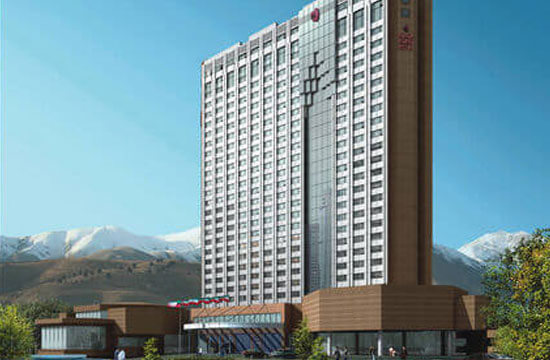
Persian Azadi Hotel
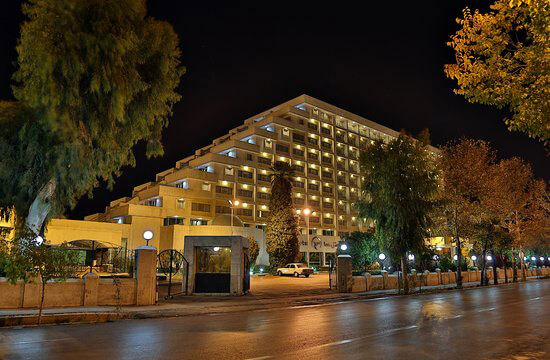
Homa Hotel
knee replacement | knee surgery
How is knee replacement performed in Iran?
Knee replacement surgeries in Iran are typically performed using general anesthesia, spinal anesthesia, or epidural anesthesia. During the procedure, the damaged bone ends of the knee joint are removed and replaced with custom-fit metal and plastic components, known as a prosthesis. The extent of knee damage determines whether a total or partial knee replacement is necessary, with total knee replacements being the most common.
knee replacement surgery in Iran
Arthroplasty in Iran
After care knee replacement surgery
The most common routes of infection after arthroplasty are through the introduction of bacteria into the bloodstream during dental procedures, urinary tract infections, and skin infections. These bacteria can infect the space around the prosthesis.
For up to two years after surgery, you may need to take prophylactic antibiotics before dental procedures, including cleaning of the enamel or other surgical procedures where bacteria can enter the bloodstream.
Be on the lookout for the following signs of an incipient infection:
- Continued fever (temperature above 37°).
- Fever or chills
- Increasing redness, swelling, soreness in the area of the postoperative wound.
- Discharge from the wound.
- Increased pain during exertion and at rest.
Contact your doctor immediately if these symptoms occur!
- Fall prevention.
A fall during the first weeks after surgery can damage the endoprosthesis and lead to the need for another operation. Be especially careful when walking up stairs. You should use a cane, crutches, walker, handrails, or other assistive devices until the joint is strong, mobile, or strong.
Your surgeon or physical therapist will advise you on the types of assistive devices you need after surgery and when it is safe for you to stop using those devices.
What is special about your new knee joint.
The metal components of the joint can be detected by metal detectors at airports and other facilities. In such cases, inform the security staff that you had an operation with metal implantation. You can ask the surgeon for a certificate that you have implanted an endoprosthesis.
Be sure to do the following after surgery:
- Take part in training programs to maintain the stability and mobility of the new joint
- Follow special guidelines to prevent falls and damage. Patients who have suffered a fracture after total joint replacement may require new surgery.
- Let your dentist know that you have had a total arthroplasty. Antibiotics are required before dental procedures for up to two years after surgery, possibly more, depending on the course of the postoperative period. Recommendations for the use of antibiotics for the surgeon and dentist are available on the AAOS and ADA websites.
- Periodically see the surgeon for examination and x-ray control, even if you do not experience any problems with the joint.
Contact us for more information on diagnosis, treatment and free consultation for breast cance
Diseases related to the knee
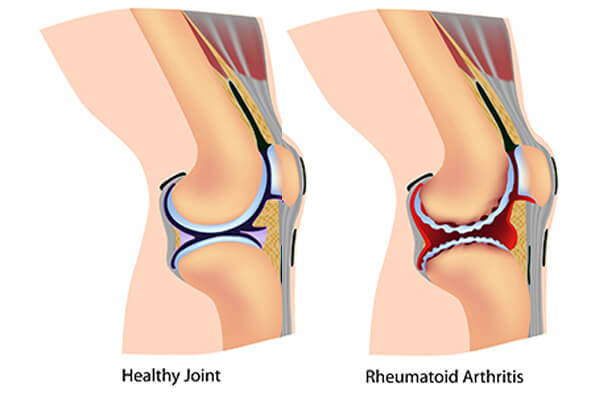
Rheumatoid Arthritis
An autoimmune disease that causes chronic inflammation in the joints, including the knee. It can lead to pain, swelling, and joint deformity.

Bursitis
Bursae are small fluid-filled sacs that provide cushioning between tendons, muscles, and bones. Inflammation of these bursae can cause knee pain.

Meniscus Tears
Menisci are knee cartilage that absorb shock. Tears result from twisting or impact, causing pain, swelling, and instability.

Gout
A form of arthritis characterized by the buildup of uric acid crystals in the joints. It can cause sudden and severe knee pain, redness, and swelling.
Considering that the patient should be examined first and the necessary tests should be done to determine the grading and staging of his disease, and based on that, it is decided what measures should be taken for treatment and surgery.
Call for more information on prices for breast surgery
If the patient is in a high grade of the disease, or has metastasized and involved other organs of the body, or if there is an infected person in the close people and relatives of the patient, it means that the patient has a genetic and family tendency to advance and relapse. In this case, two breasts are often operated.
Iran | India | U.K. |
|---|---|---|
6000$ | 7000$ | 11000$ |
Knee surgery in Iran is known for its significantly lower cost compared to other countries. This affordability has made Iran a popular destination for medical tourists seeking knee surgery. Patients can benefit from skilled orthopedic surgeons and high-quality healthcare at a fraction of the cost found in other nations.
Contact us for price information
Why Nodeh Gasht Aram in iran?
- Low cost
- Board Certified Surgeons
- Quality Health Care
- Less Waiting Time
- Accredited Hospital
- Personalized Services
- Language Capability
- Ease of Medical Visa Facilitation
- Advance Technology Treatment
- Strong presence in advanced healthcare e.g. Organ Transplant – High success rate in operations.
Contact us for more information on diagnosis, treatment and free consultation for breast cancer.
Conclusion:
Knee replacement surgery in Iran is popular for its success rate and affordability, attracting patients from different regions. The procedure offers pain relief, improved mobility, and a better quality of life, with most replacements lasting 15 to 20 years. While low-impact activities are encouraged post-recovery, higher impact activities should be avoided.
The potential disadvantages of knee replacement surgery include the risk of infection, blood clots, implant wear, limited lifespan, and stiffness in the replaced knee.
Knee joint surgery is typically associated with some level of discomfort, but effective anesthesia and pain management techniques help minimize pain during and after the procedure.
The typical hospital stay for knee replacement surgery is usually 1 to 4 days.
Iran is home to many highly regarded and accomplished orthopedic surgeons known for their expertise and exceptional skills in the field.
Determining your eligibility for total knee replacement requires a thorough evaluation by an orthopedic specialist based on your specific condition and medical history.
Recovery from knee arthroplasty takes weeks to months.
Knee joint surgery can cause discomfort, but pain management techniques are used to alleviate it.
The success rate of knee replacement surgery is generally high, with a significant improvement in pain relief and functional outcomes for most patients.
Consulting with an orthopedic specialist is essential to determine if knee joint surgery is necessary based on your specific condition and symptoms.
A knee replacement can last for 15 to 20 years or more, depending on various factors such as individual activity level, implant type, and adherence to post-operative care
it is typically recommended to plan for a stay of around 2 to 4 weeks to complete the surgery and initial rehabilitation.
The best age to have a knee replacement depends on the individual’s condition and overall health.
While pain levels vary among individuals, most patients experience a significant reduction in pain after a full recovery from knee replacement surgery.
use pillows for support, elevate the leg, and sleep on your back or non-operated side.
Knee replacement surgery has a high success rate in improving pain relief and restoring function.
Yes, walking is typically possible after knee surgery, but it may take time and rehabilitation for a full recovery.
It depends on the type of anesthesia used for the knee surgery.
patients typically start walking with assistance soon after the procedure.
it typically lasts for 15 to 20 years.
Knee joint prostheses are typically made of metal and plastic materials.
Days to weeks, depending on individual recovery and rehabilitation.
Conditions such as severe arthritis, joint damage, injury, or chronic knee pain
Yes, alternative treatments to knee replacement surgery include medication, physical therapy, injections, weight management, and other surgical procedures depending on the individual case.
Knee joint replacement surgery may not be suitable for individuals with severe medical conditions, active infections, or those unable to tolerate anesthesia.
Individuals with chronic knee pain, limited mobility, and failed non-surgical treatments.
Lower cost of medical services, government subsidies, and lower overhead expenses contribute to the affordability of knee replacement surgery in Iran.
typically it is recommended for individuals over 50 years old.
your condition may worsen, leading to increased pain, limited mobility, and difficulty performing daily activities.
The average surgery time for knee replacement is around 1 to 3 hours.
It is recommended to sleep on your back or on the non-operated side with a pillow between your legs.


